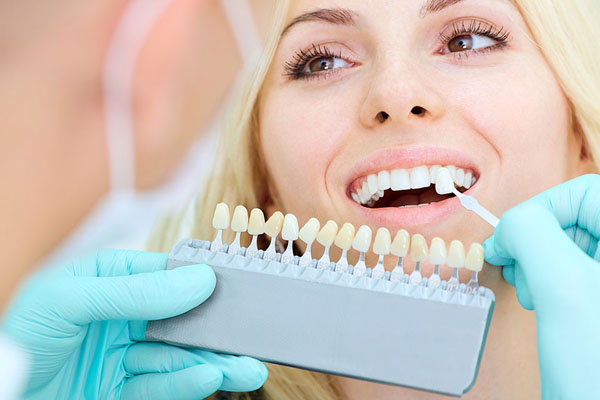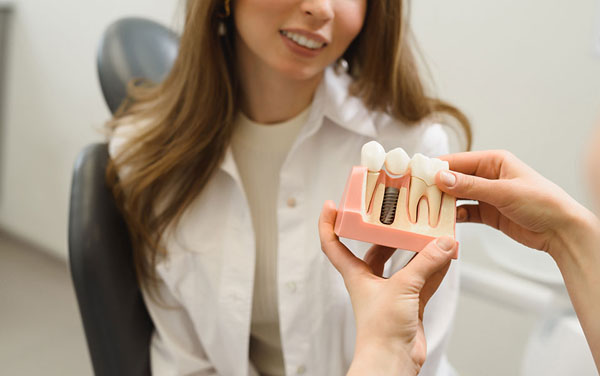Dental Crown Alternatives
What Treatment Can You Get Besides Dental Crowns?
Dental crowns are commonly used to address a variety of dental issues, but they may not always be the most suitable option for everyone. By exploring treatment alternatives, we aim to provide you with valuable insights to help you make well-informed decisions about your dental care.
Dr. James Burneson and our team at Today’s Dentistry in Ashland are committed to delivering exceptional dental care and helping patients make informed decisions about their oral health.
When to Consider Dental Crown Alternatives
While dental crowns are a reliable and effective solution for many dental issues, there are instances where alternative treatments may be preferable. Here are some situations to consider:
- Cosmetic Concerns: If your primary concern is improving the appearance of your teeth rather than addressing structural damage, alternative treatments like dental veneers or teeth whitening may be more appropriate. These options focus on enhancing the aesthetics of your smile without the need for a full crown.
- Minimal Tooth Damage: When the tooth damage is minimal, such as small chips, cracks, or superficial decay, alternative treatments like dental bonding or enamel microabrasion may be viable options. These procedures are less invasive and preserve more of your natural tooth structure compared to dental crowns.
- Preservation of Tooth Structure: Dental crowns typically involve significant tooth preparation, which may include removing a substantial amount of healthy tooth structure. If you prefer a more conservative approach that preserves more of your natural tooth, alternatives such as inlays, onlays, or fillings are worth considering.
- Financial Considerations: Dental crowns can be a more expensive treatment option due to their complexity and the materials used. If cost is a significant factor for you, exploring alternative treatments like dental bonding or removable dentures may be more budget-friendly alternatives.
- Multiple Missing Teeth: When dealing with multiple missing teeth, alternatives like dental implants, bridges, or removable dentures may be more suitable for restoring functionality and aesthetics. These treatments offer different approaches to replacing missing teeth, and your dentist can help you determine the best option based on your specific case.
Alternative Treatments to Dental Crowns
Dental Veneers
Dental veneers are an excellent alternative to dental crowns, especially when the primary concern is cosmetic. These thin, custom-made shells are bonded to the front surface of teeth. They effectively cover imperfections, such as chips, stains, or minor misalignments, providing a natural-looking and uniform appearance. Unlike dental crowns, porcelain veneers require minimal tooth preparation, preserving most of your natural tooth structure.
Inlays and Onlays
Inlays and onlays, also known as partial crowns, are an ideal alternative when the tooth damage is moderate and doesn’t warrant a full crown. These restorations are created outside the mouth and then cemented onto the affected tooth. Inlays fit within the cusps of the tooth, while onlays extend over one or more cusps. Inlays and onlays are more conservative than dental crowns, as they preserve more of the healthy tooth structure while providing strength and durability.
Dental Fillings
Dental fillings are a standard and effective alternative treatment to dental crowns when dealing with cavities or minor tooth decay. Fillings are used to restore the shape and function of a tooth after the removal of decayed portions. This conservative option requires minimal tooth preparation, preserving the natural structure. However, fillings aren’t suitable for extensive tooth damage or when the tooth’s structure is compromised.
Dental Implants
Dental implants are titanium posts that are surgically inserted into the jawbone, acting as a sturdy foundation for a dental crown. Unlike traditional crowns, which rely on the support of the surrounding teeth, dental implants are standalone replacements that mimic the structure and function of natural teeth. They offer improved stability, durability, and aesthetics, making them an excellent choice for individuals with one or more missing teeth.
Frequently Asked Questions
How long do alternative treatments last compared to dental crowns?
The longevity of alternative treatments varies depending on the specific treatment and how well they are maintained. Dental crowns generally have a longer lifespan compared to options like dental bonding or veneers. However, with proper care and regular dental visits, alternative treatments can last for several years.
Can alternative treatments to dental crowns be as effective as crowns?
Yes, alternative treatments can be highly effective, depending on your specific dental needs. While dental crowns are suitable for certain situations, alternative treatments can provide excellent results in terms of aesthetics, functionality, and preservation of natural tooth structure.
Can I combine alternative treatments with dental crowns?
In some cases, combining alternative treatments with dental crowns may be possible. For instance, dental implants or bridges can be used in conjunction with crowns to replace missing teeth. Your dentist will assess your individual needs and provide recommendations on the best treatment plan.
Discover Your Treatment Options With Dr. James Burneson
When it comes to addressing dental issues, considering alternative treatments to dental crowns can open up a world of possibilities. Dr. James Burneson and the dedicated team at Today’s Dentistry are here to guide you through the available options. We understand that each patient has unique needs, and we strive to offer alternative treatments that can address those needs while achieving optimal results.
Call our Ashland dentist at (541) 482-7771 to schedule an appointment and learn more.


